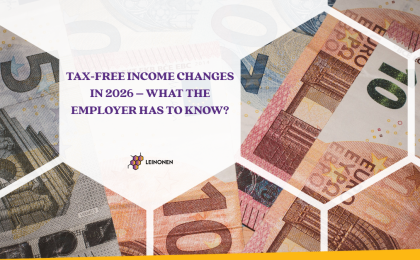When the coronavirus crisis hit in the spring, the Government of Estonia decided to suspend its payments into the second pillar. Before that, the people saving for pension paid 2% of their gross remuneration to the second pillar and the state added another 4% on account of their social tax. As of 01.07.2020, the state suspended its payments made on account of social tax (4%)[1]. In October 2020, tax payers have the right to decide whether they want to suspend their contributions or carry on.
In October (01.10.-31.10.2020) all persons who have[2] joined the second pillar will be able to decide whether they want to submit an application to the Pension Centre or their account operator to suspend their payments in the period from 01.12.2020 to 31.08.2021. Important! Once you have submitted your application it cannot be withdrawn and vice versa – if you do not submit an application in October, you must continue your contributions to the second pillar.
The Government has promised that the payments corresponding to 4%, not made in the period from 07.2020-31.08.2021, will be automatically retroactively compensated for in the years 2023-2024 to everyone who will not submit an application and will continue to make contributions to the second pillar.
For payroll calculation! Where an employee submits an application to suspend their funded pension payments, no funded pension payments can be declared for that employee on the TSD (declaration of income and social tax, unemployment insurance premiums and contributions to mandatory funded pension) form from December 2020 until August 2021. Withholding of funded pension payments will be declared as usual for employees who do not submit an application.
You can check whether an application has been submitted or not on the website of the Pension Centre as of 1 November.
Example. An employee submits an application to the bank in October to suspend payments into the second pillar. The employee’s remuneration for December is also paid in December 2020. Since accounting for tax purposes is performed on cash basis, no payments into the second pillar of the funded pension can be withheld from the remuneration paid to the employee in December and no such payment can be declared on the TSD form to be submitted on 11.01.2021.
In brief, all those who have joined the second pillar must decide in October, whether they want to continue saving in the second pillar – the state’s contribution will be added to the savings in the future. Or whether they want to suspend the payments by submitting an application and thereby also waive the state’s contribution.
We know by now that the future of the second pillar in uncertain as there are plans to reform it. It is possible that in the future you will be able to withdraw money from the mandatory pension fund before reaching the age of retirement. For this reason, it is worth considering whether you wish to continue saving money and use the opportunity to receive state contributions or suspend the contributions and find a more productive way to invest your money.
[1] This change does not apply to persons born in the years 1942-1960
[2] Persons born in the years 1942–1960 can also submit an application to suspend their payments into the second pillar (this will also suspend the state contribution of 4%)




